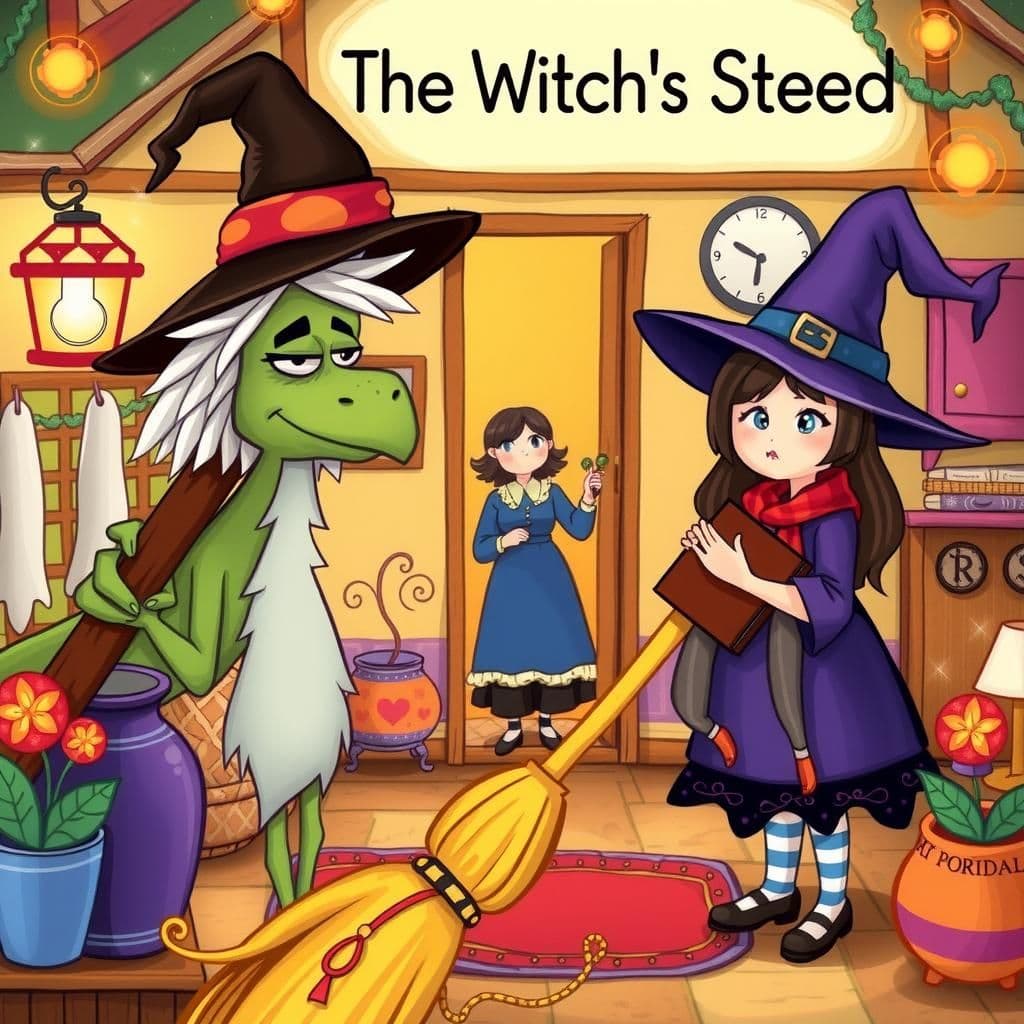The Witch's Steed

Story Summary
In "The Witch's Steed," an entertaining moral story, a broomstick serving a witch feels degraded by its role and expresses dissatisfaction. The witch humorously offers to elevate its status by introducing it to a housewife, prompting the broomstick to question the intellectuality of her hands, only for the witch to clarify that she was referring to the intellect of the housewife's husband. This short moral tale highlights the lessons learned from stories about self-worth and perspective.
Click to reveal the moral of the story
The story highlights the irony of misplaced pride, showing that true intellect may not always be where one expects it to be.
Historical Context
This story reflects the rich tradition of European folklore surrounding witches and their magical tools, particularly broomsticks, which are often depicted as symbols of domesticity and the supernatural. The narrative plays on the themes of gender roles and societal perceptions of intellect, echoing tales from sources like the Brothers Grimm and other fairy tales that explore the dynamics between witches, women, and domestic life, often with a satirical or humorous twist. Such stories frequently critique or subvert traditional gender expectations, revealing the underlying tensions between labor, intellect, and social status.
Our Editors Opinion
This story highlights the importance of valuing all forms of work, regardless of societal perceptions, and the often-overlooked intelligence behind everyday tasks. In modern life, a scenario could involve a stay-at-home parent who manages household responsibilities while their partner works outside, emphasizing that their work is equally critical and often requires significant problem-solving and emotional intelligence, challenging the notion that certain roles are more valuable than others.
You May Also Like

The Seeker and the Sought
In "The Seeker and the Sought," a clever politician uses bait to catch a turkey for dinner, humorously claiming that the bird sought him instead. This fable highlights his manipulative tactics and serves as a meaningful story with moral implications, showcasing the irony in his presentation while embodying the essence of popular moral stories.

The Honest Cadi
In "The Honest Cadi," a robber who steals a merchant's gold faces the judgment of a Cadi. Cleverly, the Cadi spares the robber's life by accepting half of the stolen gold as a bribe, resulting in a unique punishment where the robber loses only half of his head, leaving him able to converse. This engaging tale serves as a meaningful story with moral lessons for young readers, emphasizing the complexities of justice and temptation, making it an ideal choice for short bedtime stories with moral values.

The Fisherman Piping
A skilled fisherman, hoping to attract fish with his flute, finds his melodic efforts fruitless as the fish remain unresponsive. Frustrated, he casts his net without music and catches a great number of fish, which begin to leap joyfully. This short moral story highlights the irony of how the fish chose to dance only after he stopped playing, reflecting the theme often found in moral stories for class 7 about the unpredictability of behavior and the nature of desire.
Other names for this story
Broomstick Blues, Enchanted Ride, Witch's Broom, The Broom's Complaint, Magical Steed, Sorceress' Ride, Broomstick Adventures, The Witch's Ride
Did You Know?
This story humorously highlights the irony of perceived intellect, suggesting that societal roles often dictate our understanding of intelligence, as the broomstick's disdain for its work reflects a broader commentary on the value placed on different types of labor, especially in domestic settings. The witch’s response cleverly critiques the notion that intellectual engagement is solely found in traditionally esteemed roles, pointing to the complexities of gender and societal expectations.
Subscribe to Daily Stories
Get a new moral story in your inbox every day.